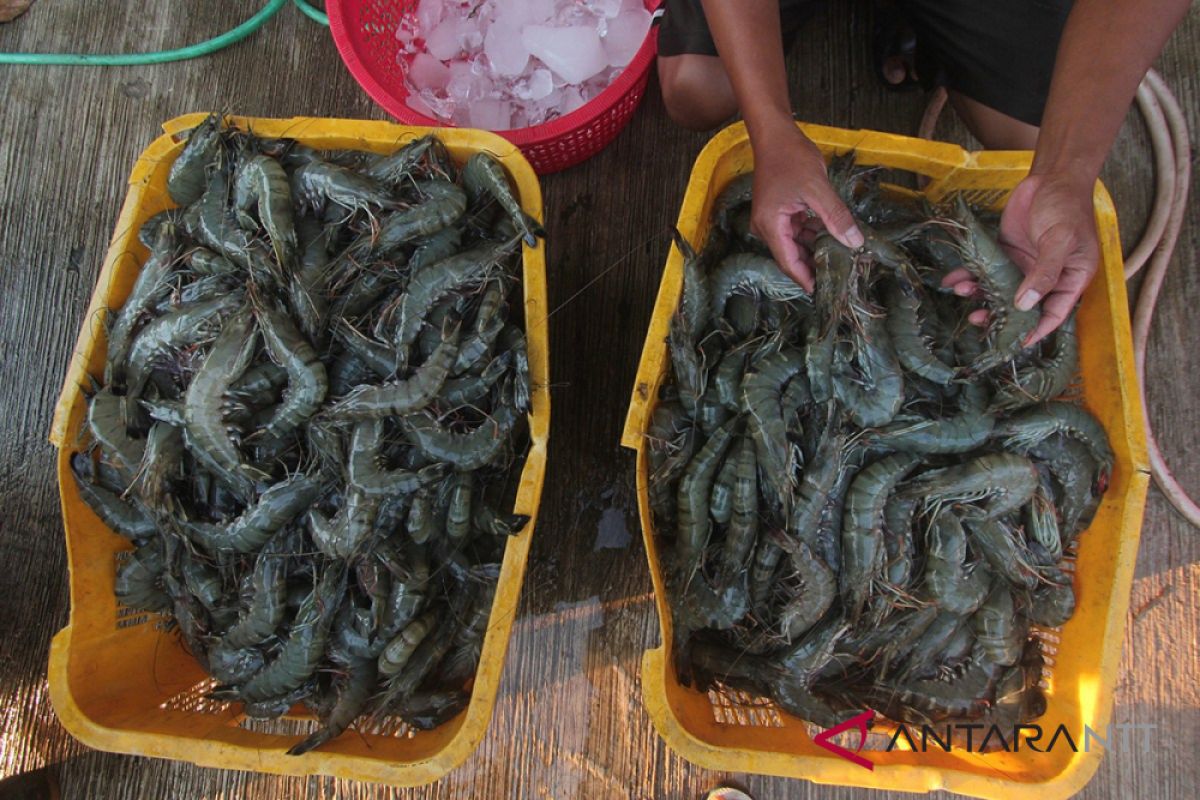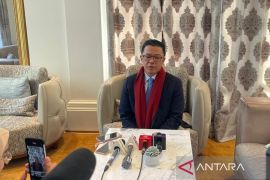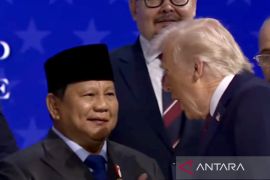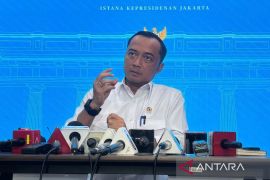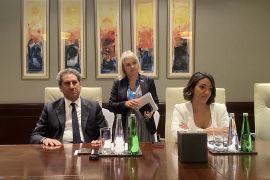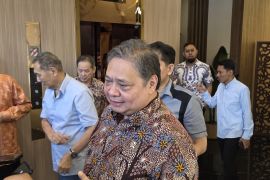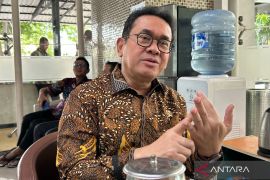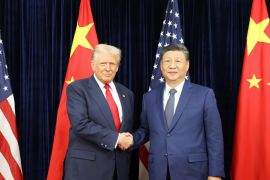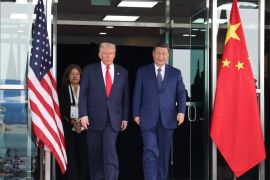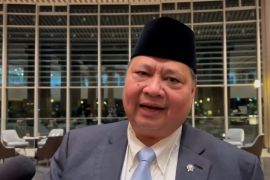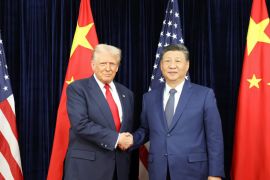Jakarta (ANTARA) - On April 2, 2025, United States President Donald Trump announced a new import tariff policy as part of Liberation Day, a strategy to free the American economy from its dependence on imports.
Based on the new policy, all imported goods are now subject to a base tariff of 10 percent, but countries with large trade deficits with the US face additional tariffs.
Indonesia is included in the list of those most affected, with additional tariffs reaching 32 percent.
Key Indonesian industries, including textiles, footwear, furniture, rubber, and fisheries, which have relied on the US market as one of their main export destinations, are likely to lose their competitive edge, especially compared to countries with lower tariffs.
For instance, Brazil faces only a 10 percent tariff, while cocoa-producing countries such as the Ivory Coast and Ghana are subject to 21 and 10 percent tariffs, respectively.
The impact of the tariff policy varies across sectors.
This policy could deal a significant blow to the footwear industry, which exports 40 percent of its products to the US. Higher import tariffs may increase selling prices, potentially making Indonesian products less competitive than those from countries like Vietnam and Mexico.
However, the fisheries sector, particularly shrimp exports, sees a hidden opportunity as Indonesia’s main competitor, Vietnam, faces a 46 percent export tariff.
With the right strategy, Indonesian exporters could capture market share from competing countries that are more affected.
Money market observer Ibrahim Assuaibi warned that Indonesia's Composite Stock Price Index (IHSG) may enter a bearish phase following the implementation of import tariffs.
However, compared to other major economic shocks, this decline is relatively controlled due to market players' readiness to anticipate Trump's several decisions since early 2025.
When the US president signaled protectionism, investors began shifting their portfolios from export-based manufacturing sectors to domestic-focused ones such as infrastructure and consumption.
Finding Middle Ground
The Indonesian government has begun taking strategic steps. Coordinating Minister for Economic Affairs Airlangga Hartarto said the government would renegotiate with its US counterpart to find a middle ground regarding this tariff policy.
Besides negotiations, Indonesia should also focus on enhancing the efficiency of its domestic logistics. Currently, logistics costs in Indonesia still account for about 14 percent of the Gross Domestic Product (GDP), significantly higher than other countries in the region.
If this inefficiency can be reduced, exporters can still maintain their competitiveness despite increasing import tariffs in the US.
This new tariff policy also presents opportunities in the investment sector. The shift in global supply chains due to the latest US protectionist policies may lead multinational companies that previously operated in Vietnam or China to seek new production locations that are more stable and not directly affected by Trump's policies.
Indonesia could be a prime candidate for this investment shift, provided it acts quickly and offers an attractive investment ecosystem.
Global investors are currently seeking countries with economic stability, regulatory certainty, and attractive incentives.
If Indonesia can provide these guarantees, it has the opportunity to attract manufacturing investments.
To achieve this, the government must promptly design supportive policies, such as regulatory reforms and fiscal incentives for investors interested in building production facilities in Indonesia.
In addition to investment, a market diversification strategy is crucial for navigating global trade dynamics.
Dependence on the US market should be reduced by strengthening exports to other regions, such as Europe, the Middle East, and Africa. Currently, several countries in the Middle East and Africa are showing increasing demand for manufactured products and commodities from Asia.
If Indonesia can establish stronger trade relations with these countries, the impact of US tariff policies can be minimized.
In the long term, this tariff policy highlights an important lesson about the unpredictability of global trade changes.
Many countries once believed that trade liberalization was the only way forward. However, Trump's policies demonstrate that protectionism can still emerge anytime and alter the world's economic landscape.
No Time for Panic
For Indonesia, this is not a time to panic but rather to act with the right strategy.
CEO of the Indonesian Business Council (IBC), Sofyan Djalil, has proposed strategic steps for the government, including focusing on efforts to maintain macroeconomic stability and providing support to affected industries, including micro, small, and medium enterprises (MSMEs), which are part of the export industry chain.
These efforts should also be reinforced with conducive policies, regulatory certainty, and structural reforms to improve the ease of doing business. Such steps are essential for boosting national productivity and export competitiveness.
Additionally, the government must renegotiate with the US government and review the framework of the trade agreement between both nations, aiming for fairer and more balanced tariffs.
This approach not only seeks to maintain existing trade relations but also to expand the potential for bolstering trade through strengthening active trade diplomacy.
The Indonesian government must also take multilateral negotiation steps with ASEAN countries to encourage a fairer and more equal international trade order.
As ASEAN is a large and important trading partner, both the US and ASEAN stand to benefit from trade negotiation and diplomacy rather than unilateral policy implementation.
It is important to expand bilateral and multilateral trade cooperation agreements and accelerate the completion of ongoing trade negotiations (FTA). Cooperation agreements with countries and regions will eventually broaden Indonesia's access to new markets.
On the other hand, efforts must focus on improving the efficiency of the manufacturing sector, attracting investments through more proactive policies, and diversifying export markets to reduce dependence on the US. In the wake of such conditions, countries that can adapt quickly will gain advantages.
From an investor's perspective, this momentum could be utilized to identify quality stocks with strong growth potential.
The market is experiencing a consolidation phase after external pressures. In such conditions, stocks with strong fundamentals are well-positioned for long-term growth.
Ultimately, while Trump's tariff policy reflects unavoidable global dynamics, Indonesia must resist passivity.
With the right approach, such as targeted strategic steps and an optimistic outlook, Indonesia can leverage this policy as a catalyst for building a stronger and more resilient economy capable of navigating global challenges.
Related news: Indonesia responds to US tariffs with equal, fair negotiations
Related news: Trump's tariff policy momentum to bolster national industry: MPR
Related news: Government should anticipate impacts of US import tariff: House member
Translator: Hanni Sofia, Resinta Sulistiyandari
Editor: Primayanti
Copyright © ANTARA 2025
